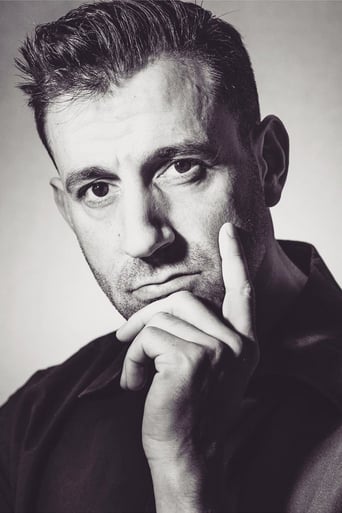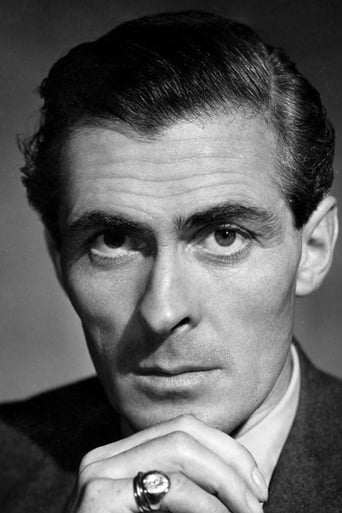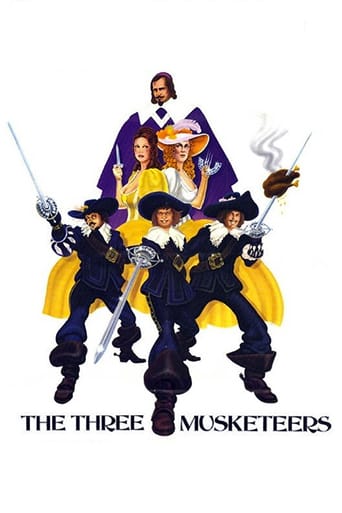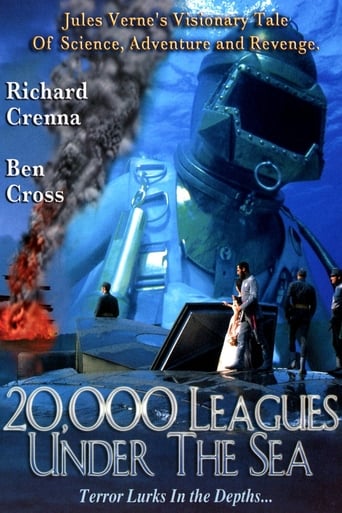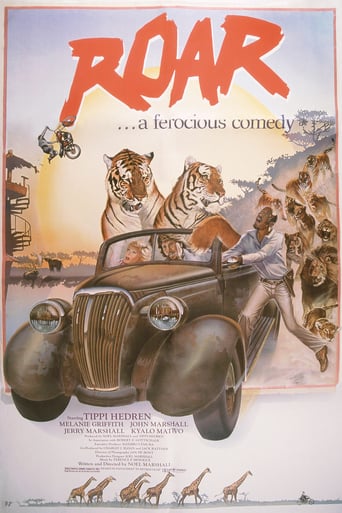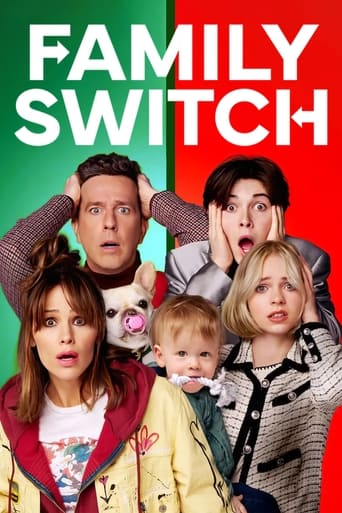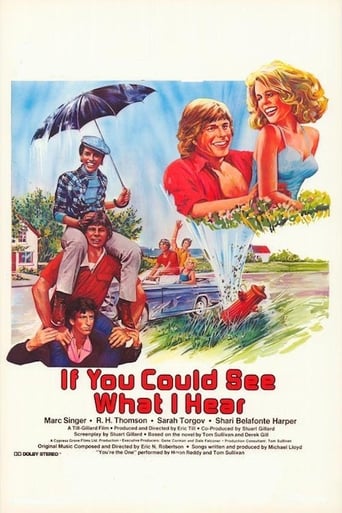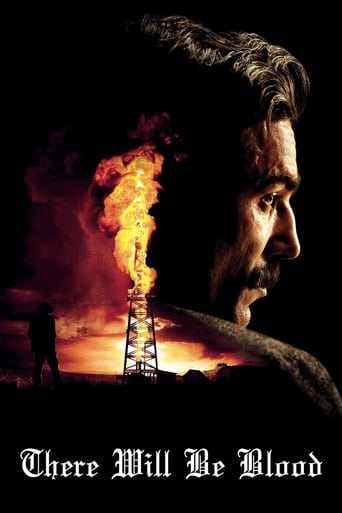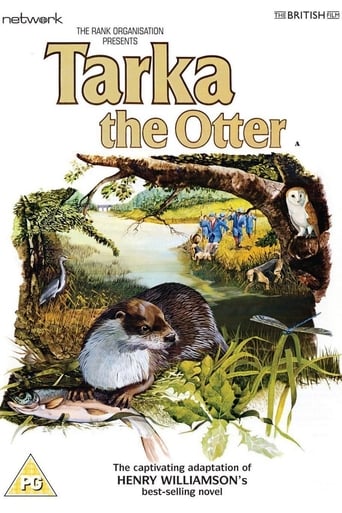
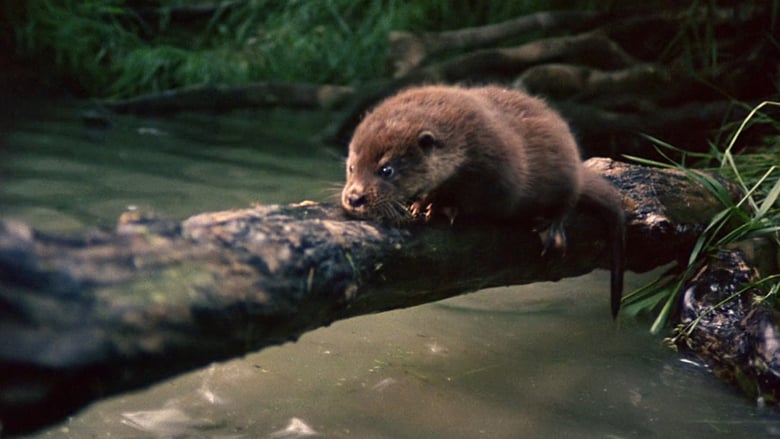
Tarka the Otter (1979)
Set in the English countryside of the 1920s - when otter hunting was still legal - this film follows the life of Tarka the Otter from his birth into adulthood. We witness his close shaves, and his struggle with a man who tries to keep our furry hero as a pet.
Watch Trailer
Cast
Similar titles
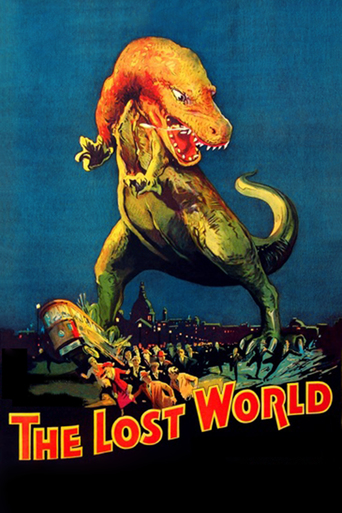
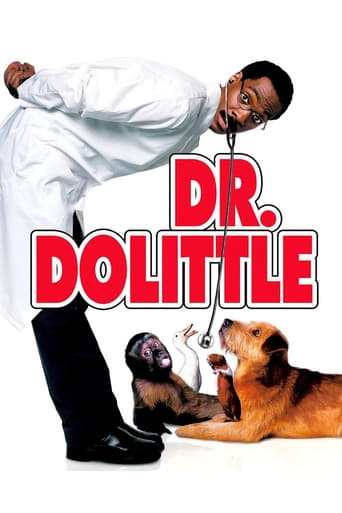
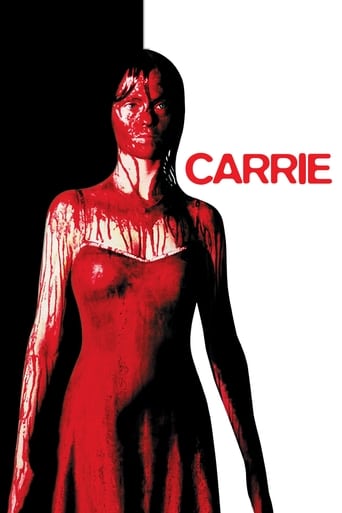
Reviews
I like the storyline of this show,it attract me so much
Simply A Masterpiece
A waste of 90 minutes of my life
I am only giving this movie a 1 for the great cast, though I can't imagine what any of them were thinking. This movie was horrible
The first thing that stood out about this film was the wonderful photography that provided a vivid and beautiful portrayal of life in the English countryside, with bubbling brooks, the passing of the very distinctive seasons and the flashes of colour and life from birds, insects and animals. While the people spoiled it, both for their presence and their behaviour, the film was a realistic portrayal of life in the countryside and I do not understand people wanting to shield children from that. A lot of modern problems stem precisely from our distancing ourselves from nature and an understanding of its workings. That is the REAL world and ours is an artificial creation superimposed upon it - ostensibly in an effort to rise above its harsh and savage aspects, but all too often failing to meet the lofty ideals. I saw Bambi in a crowded cinema, when I was 3 or 4, and when that fatal shot rang out my little voice piped up "Mummy, did the hunters just kill Bambi's mother?" My mother responded truthfully... "Bwah!!!" But the film moved on and so did I. In retrospect I think my reaction broke the tension of an audience that was all wanting to bawl their eyes out and they were duly grateful. Kids should learn that nature can be savage at an age when they can assimilate the fact. Bringing one's children up to believe that the universe will conform to their desires may easily lead to disillusionment or the feeling they weren't 'wanting' hard enough. Much better to teach them that the world operates on the principle of cause and effect and that we must assume responsibility for all our contributions (positive or negative) to that process! At the end of the film, I thought it was saying Tarka escaped down to the sea, the 3 bubbles showing his path. But I see other viewers assumed he had stopped breathing and was dead. It's a nice ambiguous ending where I suppose one can read what one wants into it. But as in "Ring of Bright Water", there's always the next generation to carry on the genes. At one point I consoled myself by thinking "Well it's not as savage as bullfighting", but is that even true? It is certainly not to our credit that humans consider it sport to hunt, torture and tear animals apart, using overwhelming odds to virtually ensure a kill. Sport with animals is what the Cretans did, performing acrobatics over and around a ferocious bull to demonstrate their courage and skill without harming the animal at all.
First of all, let's be clear: No one can say this movie is harmless to children. That depends entirely on the child and the circumstances surrounding the viewing of the movie.Secondly, Bambi's mom getting shot or any of the other staple losing- your-parent(s) tragedies in mentioned animated Disney movies is not comparable to this movie for two big reasons: the live action, and when it occurs. The others don't appear to be showing a real living creature you've grown attached to during an entire movie being finally massacred by dogs in a river. Dramatized animation with an unnamed parental figure at an early point in a movie doesn't have this impact.My mother sat my brother and I down to watch this movie when I was around 5, thinking it would be a nice Disney flick for us to get lost in. We rooted for the otter and couldn't wait to see him get away in an exciting ending. Then, we were shocked senseless at the unexpected brutality, and held our mother accountable for setting us up for such heartache. She felt betrayed by Disney and that would be the last time my mother would show us anything from them without researching it a great deal. Further, it turned us both off of Disney for most of our lives.Yes, children need to see that things don't work out perfectly. But, many children (and their mothers) might see this movie expecting a very different payout from a Disney flick. The main hero doesn't make sacrifices and lose loved ones only to emerge a bigger person in the end; he's just flat out torn to pieces.So, if you're thinking of showing this to your kids, at the very least, let them know what's in store. And in all cases, remember it helps to look at things from more than one side.
I taped this on DVD a few weeks ago and finally got around to watching it. The photography alone is stunning, and the otters are so beautiful. A sad ending was referenced, and at first I didn't know, but was watching with my mom, and when Ustinov narrated three bubbles leaving the scene, she was convinced and convinced me that it was the three otters: Tarka, his mate, and their baby moving to a new location. My almost 4-year-old granddaughter was watching, too, and LOVED it. She handled the deaths just fine, including Tarka's mother bleeding after being shot. The movie shows some death, but much more life. I like the music, the story, the scenery, everything.Since writing this review, I have read other reviews about the movie, watched again alone, and watched it with the 3-year-old referenced above, as well as her 7-year-old sister. No doubt, Tarka died in the end, and the 7-year-old was very sympathetic with Tarka's difficulties throughout the movie. It didn't bother her when Tarka and the otters ate the eels or fish or went after chickens, her loyalty was with the otters and she kept saying she couldn't keep watching. Each time, though, she did keep watching and enjoyed the movie, and perhaps thankfully fell asleep before the last hunt. As the scenes went forward, the 3-year-old remembered the entire movie from scene to scene and was as enthralled the second time around as much as the first. But with the sensitive child, it offered what I perceive as an opportunity to see that nature is, among other things, cruel. Tarka encounters marvelous and varied experiences in his full, albeit difficult, life. This little otter stepped out of the normal path because of being alone. It enabled him to be a worthy opponent for the trained dogs and even to take out one of the enemy in the end. This movie represents a triumph over adversity. Tarka finally succumbed, but what a valiant little creature from a fierce breed. Butterflies can be fierce, hummingbirds are fierce, dolphins live passionately and fiercely. It seems to me that this is an aspect of nature to embrace and celebrate, maybe to emulate, not to run from and condemn. Because he was so resourceful and good at surviving, he was able to leave cubs behind. His difficulties weren't limited to being hunted by dogs.A final note about varying comments about anthropomorphism in the movie. My understanding of this fallacy is to attribute human qualities and feelings to non-human creatures and things. This movie does that in abundance, but I don't have a problem with it. I tend to take an anthropomorphic view oftentimes, anyway. Looking at Tarka's life from a perspective we can relate to helps us to relate to the life experiences of the otters. So I say, yes, anthropomorphism runs rampant in the move, and that this is okay. It takes the movie out of the realm of being a cold, emotionless documentary, the narratives of which, btw, are frequently highly anthropomorphic in their presentation.
A rather odd family orientated film, it is narrated by Peter Ustinov in an awkward documentary-like fashion, with terms that may be too complex for younger viewers, although the story is a bit simple for any older viewers. There is some good scenic photography and a few clever close-ups on animals, plus the accompanying music is quite nice, but the film suffers from a lack of proper characters and dialogue, which causes me to wonder whether the film would have been better told in some form of animation with talking animals. The story could have also done with some humorous touches, but as flawed as it may well be, it still a highly unique film, and it does have a fairly good technical side.

